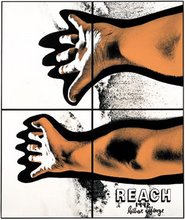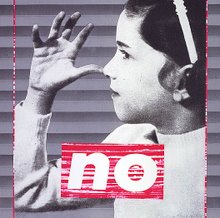Like whores, us all. It's not often that I disagree with Dan Savage...or ever, actually...but this time I gotta contradict his reasoning. He quotes E.J. Graff, currently the Brandeis Women's Studies Research Center resident scholar.
"Once upon a time, the West had a 'traditional' marriage philosophy." The husband owned his wife, whatever children she bore him—you know the drill. But capitalism eventually came along—thank God!—and freed us from those confining sex roles.
Actually, I believe Elizabeth Cady Stanton had a lot to do with this. But, you know, whatever.
"Each of us now has to make a living independently, based on individual talents and efforts rather than traditional roles. Over time, this led to gender equality in both the job market and the marriage market. Between 1850 and 1970, every developed country struck down its sex-based rules, both in labor (i.e., women can be plumbers and legislators) and in marriage (i.e., married women can own property, hold jobs without hubby's permission, have custody of children, and even—gasp!—say no in bed). The result: Gender equality is today's governing public philosophy, in marriage and in much else. For 150 years, courts and legislatures have changed marriage law to fit this philosophy, under which same-sex couples fit just fine."
For one thing, I don't know where this person got the whole "gender equality is today's governing public philosophy" line, because I must have missed that memo. In most states, and correct me if I'm wrong (and I mean correct me with legitimate statistics, not your opinion or something you read in Newsweek), it is not considered possible for a husband to rape his wife--or at least it's next to impossible to convict a husband for raping his wife. Women are still underrepresented in top jobs and payed less for the same work performed by their male coworkers. Women are often excluded from professions deemed masculine; it's still rare for a woman to be able to fight in the army in direct combat situations.
Furthermore, where did this notion of capitalism created equity between the sexes come from? Is this person completely rejecting years of Marxist Feminist philosophy--which I don't completely agree with, but it still makes some valid points? Did Graff completely miss the entire set of theory which discusses how the rise of capitalism and the subsequent separate spheres of influence completely voided the worth of what women contributed to family? Capitalism undervalues traditional women's work (e.g. child care and housework) because such work does not have a precise monetary value. So, I have to say, where in the heck did Graff come up with this? I could dig out my Women and Gender in America notes and continue, but I think I've made my point.
I should note that I was told by my WOST advisor that Brandeis has a suck Women's Studies department. Maybe that explains it.



No comments:
Post a Comment